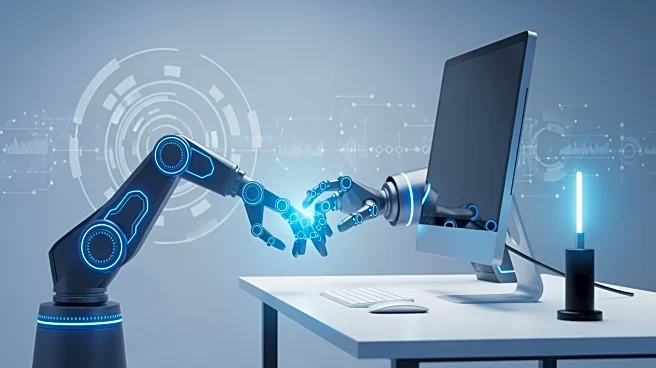What's Happening?
Major AI companies, including Meta, are undergoing significant workforce restructuring as AI technologies advance. According to Brad Gastwirth, global head of research and market intelligence at Circular
Technology, these changes are not driven by a lack of demand but by internal restructuring. Meta, for instance, is transitioning from 'AI research mode' to 'AI productization mode,' leading to the elimination of 600 jobs primarily from overlapping research and support teams. This shift is part of a broader trend where AI is automating roles that were previously manual, reducing the need for a large workforce.
Why It's Important?
The restructuring within AI giants highlights the profound impact of AI on the tech industry's employment landscape. As AI automates repetitive and coordination tasks, companies can operate more efficiently with fewer employees. This trend underscores the dual nature of AI as both a driver of innovation and a disruptor of traditional job roles. While it enhances operational efficiency, it also necessitates a reevaluation of workforce strategies and the development of new skills to adapt to an AI-driven environment.
What's Next?
As AI continues to evolve, companies are likely to further streamline their operations, focusing on efficiency and monetization. This may lead to additional workforce adjustments and a greater emphasis on developing AI-driven products and services. Companies will need to balance the benefits of automation with the potential social and economic impacts of reduced employment opportunities in certain sectors.
Beyond the Headlines
The shift towards AI-driven operations raises ethical and societal questions about the future of work. As AI replaces certain job functions, there is a need for policies and initiatives that support workforce transition and skill development. Additionally, the reliance on AI for decision-making processes necessitates robust governance frameworks to ensure transparency and accountability.










